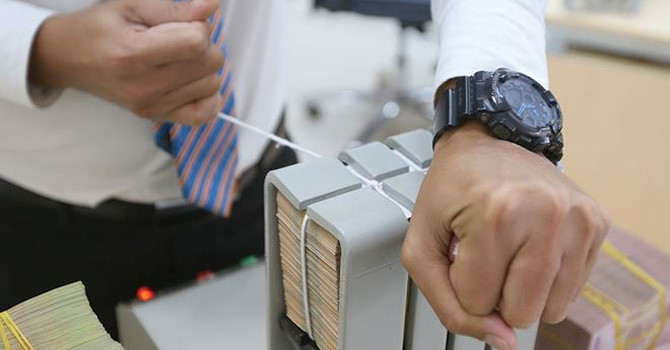SCIC Faces Problems With SOEs That Divest Holdings
Last update 15:00 | 25/06/2018
SCIC faces problems with SOEs that divest holdings

This is because SCIC tried to divest shares in the enterprises, but the shares could not be sold.
The shares are sold at auction where big shareholders need to buy only a small percentage of shares to be able to control enterprises.
Ketut Ariadi Kusuma from the World Bank said in many cases buyers want to buy just enough shares to obtain the right to control enterprises. If they cannot, they won’t buy anything.
When divesting, it is necessary to clarify the purposes of the divestment – for money or for other purposes.
Nguyen Trong Dung, deputy head of the Steering Committee on Enterprise Renovation and Development, asked World Bank experts about the best time to sell shares to strategic shareholders or to the public through auctions.
It is difficult to harmonize the purposes of the sale of enterprises – trying to collecting as much money as possible from the share sale, or focusing on finding strategic investors to help develop enterprises. |
An expert said there was no need to be worried about the loss of Vietnamese brands or the right to control enterprises. In many cases, enterprises need as many shareholders as possible.
When restructuring ownership in enterprises with a high number of shareholders, buyers want to buy more, because they can see the high liquidity of shares.
Deputy general director of SCIC Le Song Lai said it is difficult to harmonize the purposes of the sale of enterprises – trying to collecting as much money as possible from the share sale, or focusing on finding strategic investors to help develop enterprises.
After each sale, the seller does not care about the buyer, and only pays attention to how much money the sale brought and how high the selling price was compared with the market price.
Experts stress that ensuring the sustainable development of enterprises after equitization must be put a top priority.
Dr Nguyen Quang Trung said strategic investors play a very important role in the development of enterprises, so it is necessary to be flexible in choosing investors.
It would be better to choose strategic investors based on their profiles, history and their commitments, and the offered share price must not be the decisive factor.
In mid-2017, Deputy Prime Minister Vuong Dinh Hue approved a list of 406 State-owned enterprises marked for divestment until 2020. The disinvestment aims to raise funds for the nation’s public investment plan and advance the SOE restructuring process.
RELATED NEWS
Vietnamese government raises US$61.5mn from SOE divestment
Positive equitisation and divestment outlook in 2018
Mai Thanh
vietnam economy, business news, vn news, vietnamnet bridge, english news, Vietnam news, news Vietnam, vietnamnet news, vn news, Vietnam net news, Vietnam latest news, Vietnam breaking news, SOE, SCIC, disinvestment
Vietjet Launches Four Routes Linking Top Destinations Of Việt Nam And India
Vietjet has officially launched four more services linking top destinations of Việt Nam and India including HCM Ci... Read more
Sacombank To Recruit 300 Staff By July
Sacombank is set to hire 300 employees by the end of July for positions like personal/corporate customer service ass... Read more
"Fly First-Pay Later" By MOVI And Vietjet Wins Technology Award
“Fly first - Pay later” is an 100 per cent online financial product that first appeared on the Vietnamese market... Read more
EXIM Thailand Opens Representative Office In HCM City, Inks Credit Deal With BIDV
The Export-Import Bank of Thailand has agreed to provide the Bank for Investment and Development of Việt Nam with ... Read more
Vietjet Launches Two Routes To India
The two newest routes, which will operate 3 and 4 round-trip flights per week respectively, are expected to continu... Read more
Vietjet Develops E-logistics, Pays 20 Per Cent Stock Dividend
The budget carrier expects to earn more than VNĐ22.3 trillion (US$959 million) in air transport revenue in 2022 Read more

